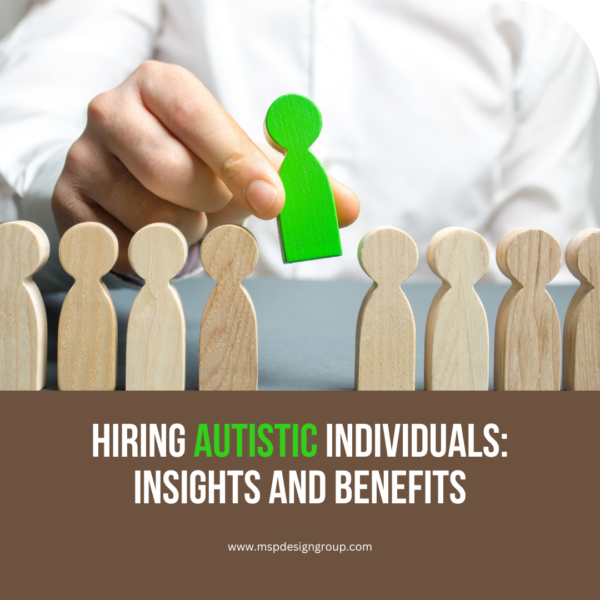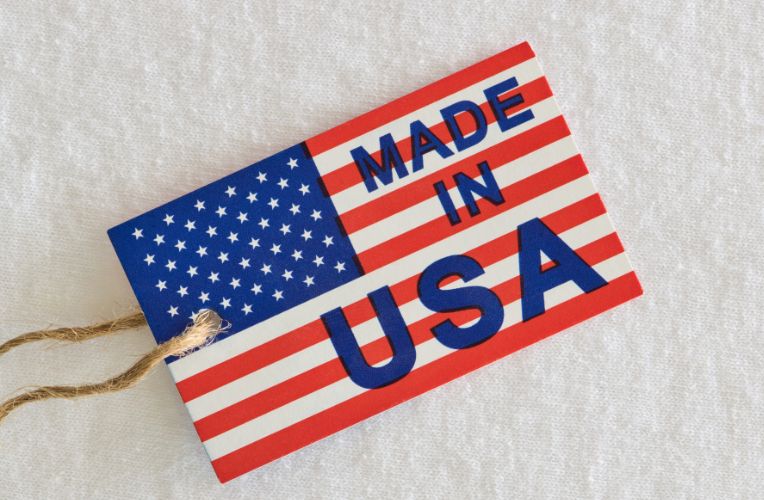
Hiring Autistic Individuals: Insights and Benefits
Read Time:
5.2 minutes
Categories:
Date Posted:
April 25, 2023
As businesses adapt to the changing landscape of work, some employees are finding that they prefer remote or hybrid work arrangements, while others struggle to find jobs that suit their needs. For individuals with autism, however, there is a growing opportunity to fill jobs that require attention to detail and repetitive tasks, as these are areas in which many autistic individuals excel.
In this article, we will explore the benefits of hiring individuals with autism, how to find the right niche for them, and the programs and grants available to support their employment. Additionally, we will discuss the potential biases that may limit the hiring of autistic and special needs individuals, and how businesses can work to overcome them. By embracing the strengths of individuals with autism and creating a more inclusive workforce, businesses can not only improve their productivity but also contribute to a more diverse and compassionate society.
What is the Right Niche for Autistic Workers?
It depends on the individual.
Finding the right niche for an autistic individual to work in can be a challenge by itself, as autism is a spectrum diagnosis: meaning there are a wide variety of people with just as many talents and abilities as anybody else. There are those autistic individuals who require more assistance than others, and there are programs available to support their needs. Knowing which autistic individuals will work well for your organization depends on the work and scope of the job you need to fill.
For Gabriel Hargett, founder of Oowee Products in Asheville, NC, he needed workers who followed a specific routine with each piece of product that they produced. The production environment they’ve set up enhances the strengths that many autistic individuals have: an elevated level of attention to detail. He also discovered that repetition and consistency are key elements for his autistic workers to thrive. To maintain their quality control and improve their productivity, they employed color codes and diagrams to help with their daily routines and workflow processes.
Gabriel also noticed in their production set-up at Oowee Products, the more structured and repetitive the task, the better the employee performs. Anything that breaks that routine can cause problems. He also suggests having autistic employees work shorter amounts of time, with a three-hour shift proving to be the most effective work schedule. Anything much over three or four hours, and their attention starts to wander, but they’re more focused on the task at hand during that shorter workday and therefore more productive.
Danny Combs, the founder of TACT, has another approach to getting autistic individuals trained and employed. TACT – Teaching the Autism Community Trades – is a non-profit based in Colorado that works with many major corporations, including Google, Mitsubishi, and several others. According to Danny, their focus is on training autistic/special needs individuals in trades such as plumbing, electrical, construction, automobile repair, and HVAC, to welding and more. These individuals have a very high success rate with their employers in their ability to identify/fix/repair things, as well as their reliability as full-time employees.
The abilities of each autistic individual may vary, and the programs available to train them vary as well. Gabriel found solutions while working with the Autism Society of North Carolina, while Danny Founded a solution with TACT. What may work for your business is as simple as connecting with a local non-profit in your area, there are Autism Society affiliates throughout the country, and that may be a good starting point.
One thing is certain, though, both Gabriel and Danny shared that while training and working with autistic individuals, they have consistently surprised and inspired friends, families, and coworkers with their contributions.
Are There Available Programs and Grants for Hiring Autistic Workers?
Yes, absolutely!
Former President of the Autism Society of America, Scott Badesch, who now regularly consults with businesses and non-profits, shares that there are many grants and programs available through local non-profits to help facilitate the hiring of special needs employees.
Each state has its own particular set of rules that must be followed to hire autistic/special needs individuals. There are certain steps that must be taken to hire them. These programs and grants often come with oversight provided by the state. For example, Oowee Products, whose workforce is comprised of over half of special needs individuals, says their program is audited by the state of North Carolina and it isn’t uncommon for the participants’ social workers to stop by their place of work unannounced.
Many non-profits also provide transportation and, more importantly, training. This ensures that the special needs workers needs are taken care of properly and are prepared to begin work from the time of their hiring and all that must be done is get them acclimated to the daily routine and processes for which they will be responsible.
Is Bias Limiting the Hiring of Autistic and Special Needs Individuals?
Possibly.
According to Scott Badesh, “Sometimes people don’t hire an autistic or special needs individuals, not because they aren’t technically trained or educated. Sometimes our own bias in the hiring process gets in the way.” He further elaborates that the standard hiring processes of most companies lends itself to a bias that alienates autistic and special needs individuals. This could be as simple as how a resume is reviewed, to how a company typically interviews a candidate. He encourages the removal of bias in the hiring process as much as possible. He discovered in his consultation practice that removing bias has allowed for an increase in special needs individuals to be hired, including autistic individuals.
Why should You Hire someone who is autistic?
Hiring individuals with autism can bring a unique set of benefits to businesses, including reliability, attention to detail, and a strong work ethic. It is important to find the right niche for these workers, and there are programs and grants available to facilitate their hiring and support their needs. Removing bias from the hiring process can also increase the number of autistic and special needs individuals who are hired. By creating a supportive work environment and providing these individuals with a sense of purpose and opportunity, businesses can not only improve their productivity but also contribute to a more inclusive and diverse workforce.
Increase Your Results with Branded Merchandise Solutions

Elevate Your Brand with Custom Merchandise
Our personalized service, global sourcing, local production, and in-house creative team make finding the perfect promotional products a breeze.
Discover the Perfect Promotional Products for Your Brand! Click Here to Get Started.

Design Custom Apparel that People Love to Wear
Our 100,000 sq ft state-of-the-art facility handles a wide range of apparel and decoration methods. Let’s create something on-trend and truly unique for your brand.
Create Trendy, Custom Apparel for Your Brand!

Make A Lasting Impression with Impactful Visual Communications
From signage and wayfinding to environmental graphics, our expert team can create custom solutions that elevate your brand and guide your audience.
Elevate Your Brand with Custom Visual Communications! Click Here to Learn More.
 Online Solutions to Elevate Your Brand
Online Solutions to Elevate Your Brand
Our ecommerce solutions are perfect for gifting, rewards and recognition programs, team gear, fundraising, or selling your products directly to customers. Our advanced platforms offer seamless shopping experiences, fun gifting options, and secure transactions.
Boost Your Brand with Our Ecommerce Solutions! Click Here to Explore.
 We Do the Heavy Lifting So You Don’t Have To
We Do the Heavy Lifting So You Don’t Have To
MSP Design Group provides an in-house, NetSuite enabled kitting, warehouse and fulfillment facility. We provide end-to-end solutions tailored to your unique needs. With complete control of our processes, your program is in excellent hands.
Streamline Your Operations with Our End-to-End Solutions!
 Our In-House Creative Team Has You Covered
Our In-House Creative Team Has You Covered
Looking to create your own unique apparel designs? Envision a unique product that doesn’t exist yet? Want to create a new experience? MSP Design Group’s team of in-house creatives, designers, merchandisers and program experts are ready to help bring your vision to life.
Bring Your Vision to Life with Our In-House Creative Team! Click Here to Learn More.






